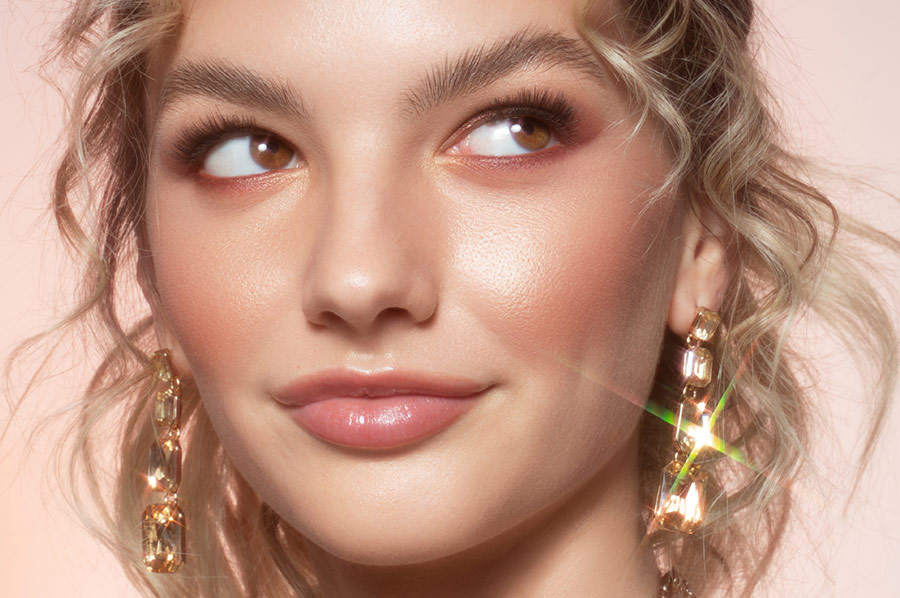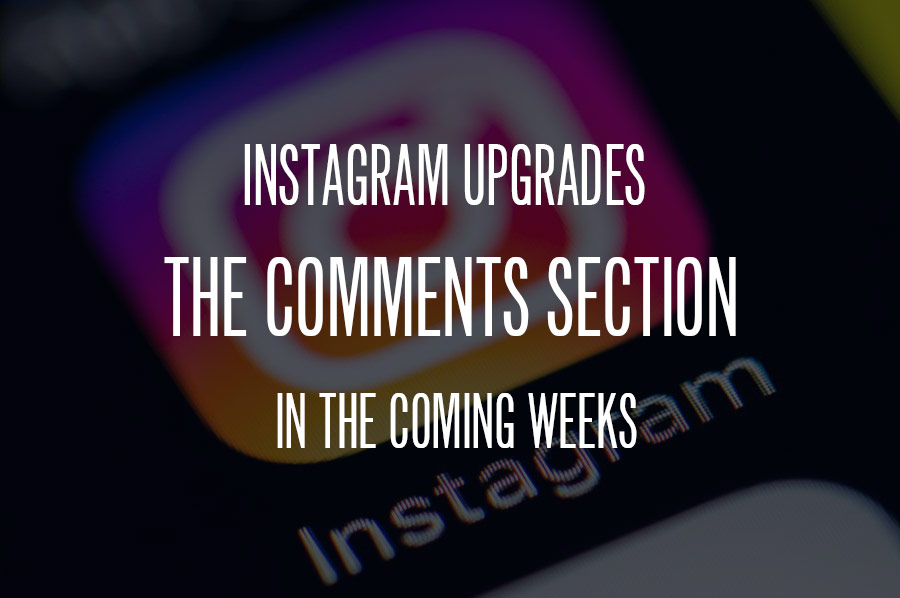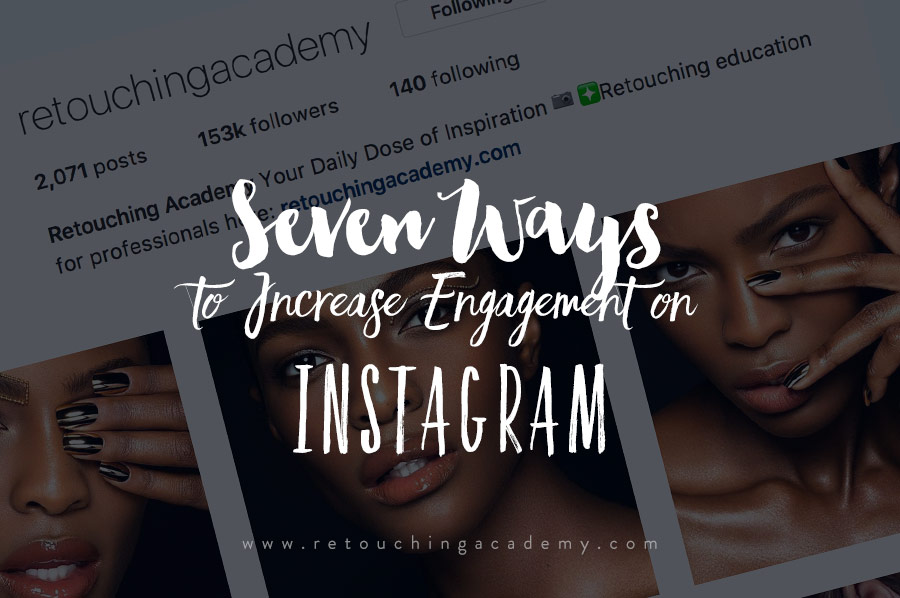Many photographers and retouchers have ambitions of seeing their work in glossy magazines or campaigns by recognizable brands. But due to the popularity of Instagram, and its usefulness as a marketing tool, there now exists a new sub-category for exposure: Instagram reposts.
A repost / regram is when another account shares one of your posts, either to their Feed or as an Instagram Story. Typically this is done with a repost / regram app, that contains the caption from your original post. Reposts are even more desirable for exposure as they allow your potential clients to immediately find and contact you.
As the quality of your work improves, so do your chances of having your images reposted on another Instagram account with a larger following and a wider reach. While this can be a great way of having your work seen by a new audience, there are various aspects that should be considered.
Below we will discuss the different types of reposts, what you should expect as the artist being reposted and what recourse you have if you feel that your work was misused.
TYPES OF REPOSTS:
Inspiration & Feature Accounts
A feature or inspiration account is one that revolves around a particular theme or aesthetic. There can be an account for portraits, cats, even matte-black everything. They’re only limited by the imagination of their creators and curators, and they typically have a means of allowing users to submit their images for consideration through their website, image tagging or the use of custom hashtags.
When done right, these accounts credit the creators of the work they are sharing, and ensure that all involved are credited in the caption (and not just tagged*).
Some accounts, like our @retouchingacademy, aim to inspire their audience by sharing images that are aspirational. Inspiration and Feature accounts are really swappable entities, it’s more or less a preference of semantics. And when your target audience aligns with the following of such an account, having your work reposted with proper team credits might be a great way to gain some beneficial exposure and new followers for you and your team.
* when the team is only tagged in the image, all those tags would be lost in the very first repost and consequently all following reposts would have no proper creators’ credits.
While some of these accounts exist solely for the shared appreciation of a certain style or topic, others may also offer products, and supplement their sponsored or advertising content with these inspiration images. There are also instances of small or new magazines who will do this ahead of having their own content to share.
View this post on Instagram
Art Appreciation on Individual Accounts:
This is typically the more benign of reposts, but there will likely come a time when someone who is just a casual admirer of your work will repost you on their personal account. Typically these accounts have very small followings, and how they caption such reposts usually determines whether or not they are sharing your work in good faith, or to falsely represent their skills and promote their services.
For some artists, these can still pose an issue in terms of ownership, such as when a potential client searches for your images and sees them being posted in multiple locations by multiple users, especially without a proper credit. The lack of engagement in these small-account-reposts can also be frowned upon. For retouchers, in particular, who have to often prove themselves again and again regarding the images that they have retouched, are particularly susceptible to this.
Commercial Accounts:
This is when we step into murkier waters. Just as artists want to see their work in glossy magazines, having their work reposted by a household brand seems like a dream come true, and for some, it can be a gateway toward achieving paid work from said brand. But it’s important to examine some of the realities of this practice.
While hard numbers are difficult to find within the beauty and fashion industry, we can examine one brand in particular: Airbnb. Sitting at over 4 million followers, they have carved out a large audience for themselves on Instagram. If you look, however, you’ll notice that most of the images, are regrammed photographs taken by customers.
This is referred to as User Generated Content (UGC) and is the current lifeblood of just about every brand’s marketing strategies. For Airbnb, according to a report in 2016, 80% of their engagement on posts came from UGC, rather than the content produced by Airbnb. Customer acquisition / conversion is also increased by user-generated content, with customers being 6.9% more likely to make a purchase, versus brand-generated content.
Brands want user-generated content, which is why so many beauty brands feature selfies or amateur images. In various surveys, they determined that 60% of users found UGC to be the most authentic form of content, with 92% saying they are more likely to trust the recommendation of a friend or a fellow makeup lover. This is really the part of the market where influencers flourish.
So where does that leave your polished, professionally-photographed, and beautifully retouched images that you invested your time, money and a lot of expertise and energy into creating?
RELATED: What’s Wrong With Magazine Charging Their Contributors For Submissions
They don’t fall into the “authentic” category, because they are staged and produced, nor do they fall into a “friend” category either. In many cases, these images serve as aspirational, campaign-like images, without the brand having to spend a single cent. They are only out the time that it takes their marketing department / agency to ensure permission to repost (if they actually care to even ask).
Now, I don’t wish to be a buzzkill, because this can be a wonderful opportunity for getting your work in front of potential decision makers at big brands. So there is potential value in these reposts, but only if there is proper credit given to you and your team.
But the fact remains that very, very rarely is anyone ever financially compensated for such reposts in this industry. The makeup artist for that photo may be able to get onto a PR list of that brand and receive their product free of charge, and maybe a potential client discovers you from that repost, but the perceived value of this is purely subjective.
Some photographer’s first instincts may be to contact the brand and request a licensing fee, but this is very rarely a successful tactic.
With the flood of content on a feed of an account with millions of followers, your repost may garner a few thousand likes, and a sprinkling of new followers. There is so much content out there that you are competing against (with Instagram’s 1-billion strong userbase), and the audience of a cosmetics company or fashion label may not care to follow the photographer or the retoucher, and instead be more interested in the model, the makeup artist, or the stylist. If you’re angling for these kinds of reposts simply for the visibility, it may not be something to bank on.
View this post on Instagram
How To Handle Unwanted Reposts
There are many reasons why you may not be thrilled with your work being reposted:
- the quality was lowered and compressed with the regram application that was used;
- odd filters, cropping, unrelated graphics or other manipulations were applied without your consent;
- proper credit was not given;
- the account is advertising products with your photograph;
- the image was paid work for a client and now it’s a conflict of interest, etc.
Whatever your reasons may be, consider the following options for how to address this:
1. Attempt to contact the brand/user. I personally recommend a Direct Message. If you’re concerned about timeliness, leave a comment with “Please check DMs, thank you,” or a similar message under your reposted image on their feed. The goal is to not carry out your concern in public, and to handle it privately.
Be polite, but firm when addressing your concern with the repost. Maybe you just want yourself and your team properly credited and are asking for that. Or maybe you need to explain why the repost is problematic for you and are politely asking them to take it down.
Regardless of the reason, you have the right to communicate that concern, because, if you’re the photographer, it is your intellectual property, and you are the copyright owner. Any usage of your intellectual property without your permission is a copyright violation.
2. Report the post. If the brand did not ask your permission and especially if proper credits were not given in the captions, you do have the option of reporting it. Personally, I think this should only be done when the first option fails, if at all, as this isn’t necessarily a way to get a brand to warm up to you. However, for small accounts that may not be representing you and your own brand properly, this option is still available as a last resort.
3. Do nothing. Perhaps whatever free publicity you might gain from the repost is worth letting it stay. There are no rules or code of ethics saying you have to act. However, keep a running tab of how many times you’ve been reposted by certain brands, because after a while, you should seek a more formal contact within the company to discuss compensation for the usage of your work.
View this post on Instagram
Summary
Reposts aren’t going anywhere, as they allow brands to maximize their marketing budgets with free content. Unilever and L’Oreal, both with a host of impressive subsidiaries in the personal care space, comprise 2 out of the 5 top spenders of advertising budgets, both at over 8 billion dollars a year.
Be that as it may, the landscape has changed, with a growing percentage of those budgets going to influencers. Influencer marketing is currently a 6.5 billion dollar industry in 2019, which is 2 billion dollars higher than in 2018.
More and more, brands place a high importance on how many social media followers you have when hiring for commissioned work. One’s online presence is often their own form of currency, making it important to expand your reach and sharpen your marketing skills.
It’s up to you to decide if reposts are the right way to get there, and if you feel it is, we’ll talk more about how to make your posts more repostable in our next article.
Sources: Later | PIXLEE | Upwork | Online Marketing Institute | Business Insider | Influencer Marketing Hub
Featured Image – Photo: Kendra Paige | Model: Alexandra Baron @ Elite Miami | HMUA: Bri Soffa | Retoucher: Helen Voronych





